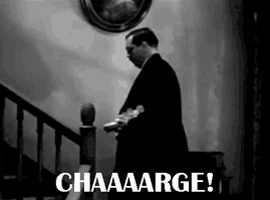The quote is from Lorraine Ali's August 29 op-ed for The Los Angeles Times, How Harvey is giving us a break from our pundit addiction, which delivers a spot-on analysis of the stunning turnaround Storm Harvey worked on the national mainstream U.S. news media and by extension the national American public discourse:
In all the arguments about what qualifies as fake news, the shift of the media during Harvey is a clear example of the difference between spin and journalism. One is news filtered through analysts, commentators or a ratings-minded, network-wide vision, the other is the stuff journalists have been doing since before your great-great-grandparents were born. Reporting the news.Yes. Within hours of Harvey's landfall the U.S. national news media and its Talking Heads had been forced to recalibrate when they discovered to their horror that the American public wasn't paying attention to them. Everyone was glued to local news coverage out of Texas on Harvey's onslaught.
Not to be outdone by a bunch of hicks, reporters for national news organizations raced to Texas and rolled out thousands of stories covering every angle imaginable related to Harvey.
This turn of events caused the American political industry to ratchet to DEFCON 1, as consultants who labor for the industry gathered in vape mist-filled backrooms to strategize on the crisis of unity that had broken out, while Americans from across the political spectrum trucked their boats to Houston to help out with rescue efforts.
To make matters worse for the consultants Harvey didn't cooperate. As the storm blew east out of Houston it left another trail of devastation. "Our whole city is underwater right now but we are coming!” Port Arthur Mayor Derrick Freeman posted Wednesday morning on Facebook. “If you called, we are coming. Please get to higher ground if you can, but please try to stay out of attics.”
This requires yet more big search and rescue operations, setting off even more unseemly shows of unity among Americans.
Yet in my view the comeuppance of the U.S. national media in America isn't really the important story to emerge from reportage on the Harvey crisis; it's the interest shown by many Americans in news coverage from local TV stations. As Ali noted:
Harvey is a not-so-subtle reminder that national news is still local, even though a handful of national outlets have come to represent what we think of as the nexus of American Media.The Big Three national cable TV channels -- FOX, CNN, MSNBC -- came to dominate coverage of American news when hard economic times in communities across America laid waste to local reporting. But they went further than reporting; the Big Three have promoted national political party agendas that are less about solving shared problems in America and more about serving the political industry.
By the time Harvey struck they had fostered so much chaos and distrust that many people had come to believe America was in the midst of a cultural civil war and headed for an actual civil war. The silver lining in Harvey's rain clouds is that the storm broke the spell. Millions of Americans are demonstrating in the face of crisis that there is no civil war, beyond the one created by a national news media that puts serving America's political industry above the public interest.
That has to change. National TV spends so much time raising specious alarms they completely miss important American events. The upshot is a kind of madness in the media; it reminds me of the running joke in the movie Arsenic and Old Lace: Every time crazy Uncle Teddy climbs the stairs he relives Theodore Roosevelt leading the Rough Riders charge up Kettle Hill.
********

No comments:
Post a Comment